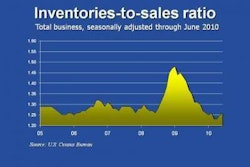
Uncertainties over death tax make planning critical
When George Steinbrenner died of a heart attack last month, his heirs undoubtedly inherited vast sums of money. Depending on how the shipbuilding magnate and controversial New York Yankees owner had planned and structured his estate, Steinbrenner might have saved his heirs hundreds of millions of dollars by dying in July 2010 rather than, say, Jan. 1, 2011.
As part of the Economic Growth and Tax Relief Reconciliation Act of 2001 – more commonly known as the Bush tax cut – Congress phased out the estate tax through the last decade. Beginning in 2002, the exemption from taxes gradually grew from $1 million to $3.5 million, and the tax rate on estate values above the exemption dropped from 55 percent to 45 percent. Then at the beginning of this year, the “death tax” went away altogether.
So if an estate holder dies in 2010, there’s no estate tax at all no matter how large the estate is. But if someone dies on Jan. 1, 2011, or thereafter, as things stand now the estate tax will be 55 percent on everything after the first $1 million.
As a matter of policy, it’s quite strange to create an incentive for people to die in a particular year. Congress chose to reverse the repeal of the death tax beginning in 2011 due to arcane federal budgeting rules that otherwise would have required them to come up with new taxes to offset the lost estate tax receipts.
Watch your back – at least until Jan. 1.
While most supporters of the death tax repeal didn’t like this glitch, they generally considered it just an inconvenience. The repeal was part of a broader package of cuts – such as the child tax credit – that were wildly popular. Those tax cuts expire at the end of this year as well. So the thinking was that as long as supporters of so-called middle-class tax cuts needed the support of death-tax advocates in Congress, the compromise would continue after 2010. One major assumption was that the Republicans had built a permanent majority in Congress and likely would hold the White House for many years as well. As we saw in 2006 and 2008, however, those assumptions were wrong.
The good news for those who support continued relief from the estate tax is that Democrats’ majorities in the House and Senate almost certainly will shrink – and perhaps even disappear – in the 2010 elections. The bad news is that there are still ways for Congress to win renewal of the “middle-class” tax cut without killing the death tax permanently or holding the coveted 60-vote filibuster-proof margin in the Senate. Indeed, Congress enacted the Bush tax cuts using a process called budget reconciliation, and the Senate, like the House, needs only a simple majority to pass a reconciliation bill.
Even if Democrats lose the House or Senate, it’s possible that the current Congress would come back to Washington for a “lame duck” session to enact legislation that it no longer would have the power to pass come January. At this point, anything is possible – from a permanent repeal of the death tax to retroactive legislation taxing estates of people who die this year.
You probably don’t have George Steinbrenner’s wealth. Indeed, you might very well consider yourself part of the middle class. But if you are a major owner in a trucking company, it’s possible that the Internal Revenue Service considers you pretty rich. Depending on various factors – including your company’s legal structure, the size of your fleet and company’s real estate holdings and your personal holdings – your estate very well might exceed the $1 million threshold by a large margin.
Fortunately, you can minimize the impact of the estate tax if it returns by consulting a tax attorney knowledgeable about estate planning. And there’s probably one other thing you should do. For the rest of this year at least, make sure your loved ones really do love you. Otherwise, you might want to hire a bodyguard. n
Avery vise is Editorial Director of Commercial Carrier Journal.
E-mail [email protected].











